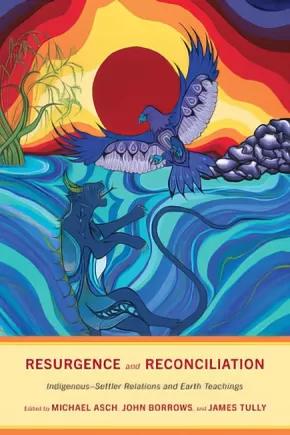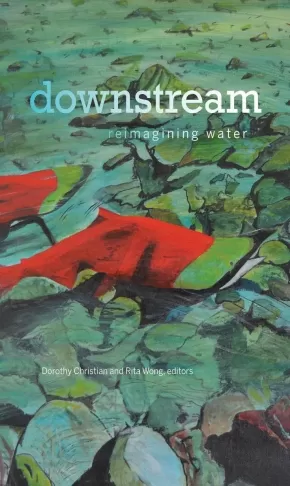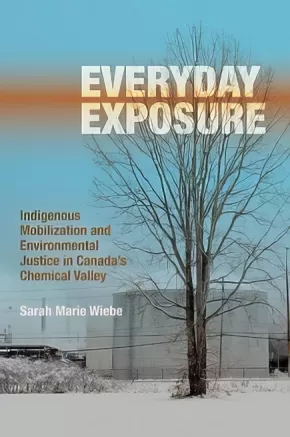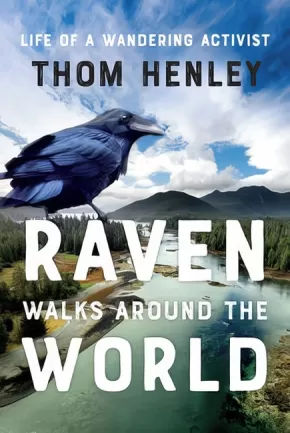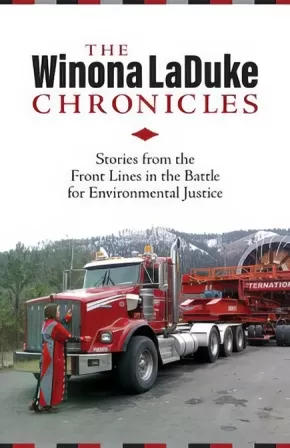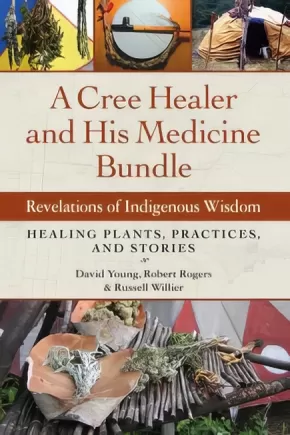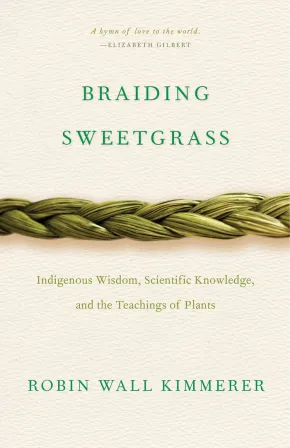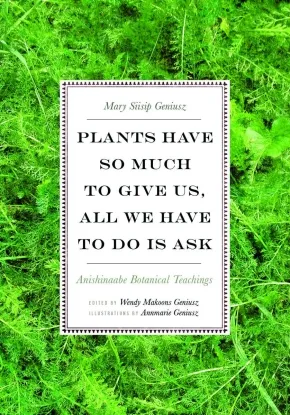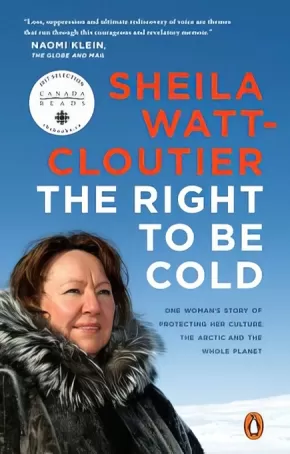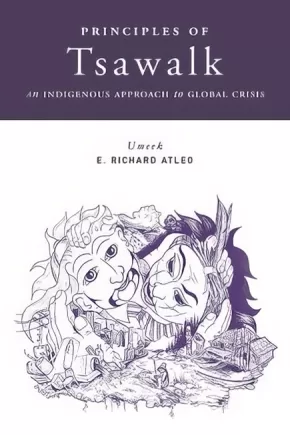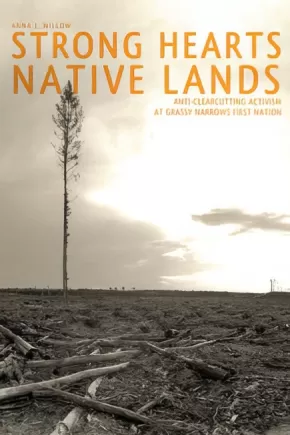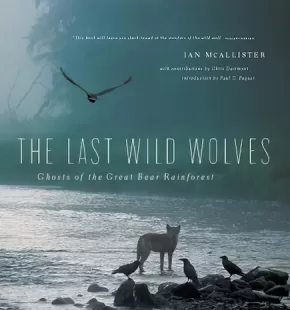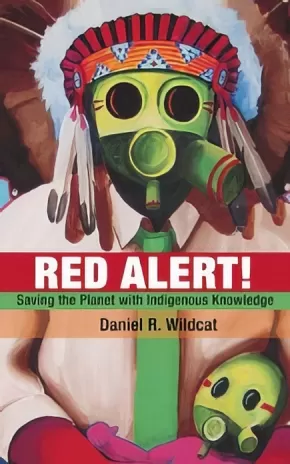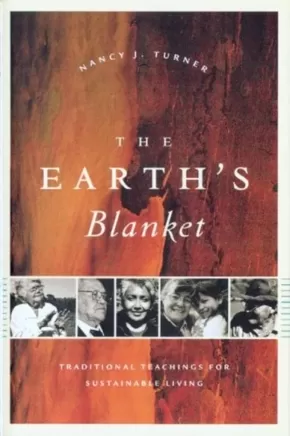Environmental Awareness
Synopsis:
The two major schools of thought in Indigenous-Settler relations on the ground, in the courts, in public policy, and in research are resurgence and reconciliation. Resurgence refers to practices of Indigenous self-determination and cultural renewal whereas reconciliation refers to practices of reconciliation between Indigenous and Settler nations, such as nation-with-nation treaty negotiations. Reconciliation also refers to the sustainable reconciliation of both Indigenous and Settler peoples with the living earth as the grounds for both resurgence and Indigenous-Settler reconciliation.
Critically and constructively analyzing these two schools from a wide variety of perspectives and lived experiences, this volume connects both discourses to the ecosystem dynamics that animate the living earth. Resurgence and Reconciliation is multi-disciplinary, blending law, political science, political economy, women's studies, ecology, history, anthropology, sustainability, and climate change. Its dialogic approach strives to put these fields in conversation and draw out the connections and tensions between them.
By using “earth-teachings” to inform social practices, the editors and contributors offer a rich, innovative, and holistic way forward in response to the world’s most profound natural and social challenges. This timely volume shows how the complexities and interconnections of resurgence and reconciliation and the living earth are often overlooked in contemporary discourse and debate.
Reviews
"Resurgence and Reconciliation provides a broader critical framework from which readers may begin to reset the charged political landscape of reconciliation. In the quickly expanding literature, law, and activism, some of the urgency of reconciliation has been unnecessarily lost. This book calls for quiet contemplation and a peaceful reframing of discussion and negotiations in what has become a noisy, busy field of Canada’s national reconciliation project." - Jeffery G. Hewitt, Faculty of Law, University of Windsor
"This collection represents a sustained and engaged dialogue between eminent and emerging scholars of Indigenous rights as they attempt to conceptualize, critique, collaborate, and document relationships of reconciliation and resurgence. The editors and contributors take on the complex debates, challenges, intersections, and fractions facing Canadians, both Indigenous and non-Indigenous, making this a profoundly important counter-colonial work." - Jane McMillan, Department of Anthropology, St Francis Xavier University
Additional Information
384 pages | 6.00" x 9.00"
Synopsis:
downstream: reimagining water brings together artists, writers, scientists, scholars, environmentalists, and activists who understand that our shared human need for clean water is crucial to building peace and good relationships with one another and the planet. This book explores the key roles that culture, arts, and the humanities play in supporting healthy water-based ecology and provides local, global, and Indigenous perspectives on water that help to guide our societies in a time of global warming. The contributions range from practical to visionary, and each of the four sections closes with a poem to encourage personal freedom along with collective care.
This book contributes to the formation of an intergenerational, culturally inclusive, participatory water ethic. Such an ethic arises from intellectual courage, spiritual responsibilities, practical knowledge, and deep appreciation for human dependence on water for a meaningful quality of life. downstream illuminates how water teaches us interdependence with other humans and living creatures, both near and far.
Reviews
"Downstream stakes out a bold and creative claim to collaborative and cross-cultural eco-spiritual-neo-traditional knowing and, with it, new approaches to policy and action. A timely read that lends depth and resonance to some of the material and voices [in other books on the subject]." — Heather Menzies, Literary Review of Canada, June 2017
"This rich collection brings together the work of artists, writers, scientists, scholars, environmentalists, and activists, all focusing on the looming global water crisis. ... Writing styles vary from piece to piece throughout the book—poetic, personal, journalistic, and academic—but the shifts between each are well worth navigating for any reader interested in human futures on Earth."— Publishers Weekly, August 2017
"This collection of works successfully expands our knowledge of and experience with water by merging natural science, social science, arts, and humanities approaches to water. It offers new, innovative, and engaging ways to think about and experience water, especially as it relates to life and vitality."— Sara Beth Keough, American Review of Canadian Studies, November -0001
Educator Information
This collection of essays is useful for these course/subject areas or topics: Language Arts & Disciplines; Creative Writing; Indigenous Studies; Poetry; Environmental Studies; Environmental Humanities.
Table of Contents
Introduction: Re-storying Waters, Re-storying Relations / Rita Wong and Dorothy Christian
Part I: Contexts for Knowing and Unknowing Water
1. Planetary Distress Signals / Alanna Mitchell
2. Water / Lee Maracle
3. Interweaving Water: The Incremental Transformation of Sovereign Knowledge into Collaborative Knowledge / Michael D. Blackstock
4. Water and Knowledge / Astrida Neimanis
5. Excerpts from “a child’s fable” / Baco Ohama
Part II: Water Testimonies: Witness, Worry, and Work
6. Water: The First Foundation of Life / Mona Polacca
7. From Our Homelands to the Tar Sands / Melina Laboucan Massimo
8. Keepers of the Water: Nishnaabe-kwewag Speaking for the Water / Renee Elizabeth Mzinegiizhigo-kwe Bedard
9. Water Walk Pedagogy / Violet Caibaiosai
10. A Response to Pascua Lama / Cecilia Vicuna
Part III: Shared Ethical and Embodied Practices
11. Moving with Water: Relationship and Responsibilities / Alannah Young Leon and Denise Marie Nadeau
12. Bodies of Water: Meaning in Movement / Seonagh Odhiambo Horne
13. Upstream: A Conversation with Water / Cathy Stubington
14. Ice Receding, Books Reseeding / Basia Irland
15. Tsunami Chant / Wang Ping
Part IV: A Respectful Co-existence in Common: Water Perspectives
16. Listening to the Elders at the Keepers of the Water Gathering /Radha D’Souza
17. Coastal Waters in Distress from Excessive Nutrients / Paul J. Harrison
18. Bodies of Water: Asian Canadians In/Action with Water /Janey Lew
19. Permeable Toronto: A Hydro-Eutopia / Janine MacLeod
20. Saturate/Dissolve: Water for Itself, Un-Settler Responsibilities, and Radical Humility / Larissa Lai
21. Bring Me Back / Janet Rogers
Additional Information
300 pages | 6.00" x 9.00"
Synopsis:
Surrounded by Canada’s densest concentration of chemical manufacturing plants, members of the Aamjiwnaang First Nation express concern about a declining male birth rate and high incidences of miscarriage, asthma, cancer, and cardiovascular illness. Everyday Exposure uncovers the systemic injustices they face as they fight for environmental justice. Exploring the problems that conflicting levels of jurisdiction pose for the creation of effective policy, analyzing clashes between Indigenous and scientific knowledge, and documenting the experiences of Aamjiwnaang residents as they navigate their toxic environment, this book argues that social and political change requires a transformative “sensing policy” approach, one that takes the voices of Indigenous citizens seriously.
Educator Information
This book would be useful for courses in Environmental Studies, Science, Social Justice, and Social Studies.
Additional Information
280 pages | 6.00" x 9.00"
Synopsis:
In 1970, twenty-two-year-old Thom Henley left Michigan and drifted around the northwest coast, getting by on odd jobs and advice from even odder characters. He rode the rails, built a squatter shack on a beach, came to be known as "Huckleberry" and embarked on adventures along the West Coast and abroad that, just like his Mark Twain namesake, situated him in all the right and wrong places at all the right and wrong times. Eventually, a hippie named Stormy directed him to Haida Gwaii where, upon arrival, a Haida Elder affirmed to the perplexed Huckleberry that she had been expecting him. From that point onward, Henley's life unfolded as if destiny were at work--perhaps with a little help from Raven, the legendary trickster.
While kayaking the remote area around South Moresby Island, Henley was struck by the clear-cut logging and desecration of ancient Haida village sites. Henley collaborated with the Haida for the next fourteen years to spearhead the largest environmental campaign in Canadian history and the creation of Gwaii Haanas National Park. Later, he became a co-founder of Rediscovery--a wilderness program for First Nations and non-aboriginal youth that would become a global model for reconciliation.
Henley's story is peppered with a cast of unlikely characters serendipitously drawn together, such as the time he hosted then-Prime Minister Pierre Elliott Trudeau and entourage, including five-year-old Justin Trudeau, at his remote driftwood hippie hut (the visit was unanticipated and at the time the helicopter touched down, Henley and a friend were doing laundry). Over and over, Henley found himself at the epicentre of significant events that included a historic train caravan across Canada, an epic Haida canoe voyage, an indigenous rights campaign world tour for the Penan tribespeople of Borneo, as well as two global disasters--the 2004 South Asian tsunami and the 2015 Nepal earthquake.
Beautifully recounted with passion, humour and humility, Raven Walks around the World is a moving and thoughtful account of a life lived in harmony with the land and community.
Educator Information
Recommended resource for grades 10-12 for these subject areas: Contemporary Indigenous Studies, English Studies, Environmental Science, Literary Studies, BC First Peoples
Additional Information
272 pages | 6.00" x 9.00"
Synopsis:
Chronicles is a major work, a collection of current, pressing and inspirational stories of Indigenous communities from the Canadian subarctic to the heart of Dine Bii Kaya, Navajo Nation. Chronicles is a book literally risen from the ashes—beginning in 2008 after her home burned to the ground—and collectively is an accounting of Winona’s personal path of recovery, finding strength and resilience in the writing itself as well as in her work. Long awaited, Chronicles is a labour of love, a tribute to those who have passed on and those yet to arrive.
Reviews
“Winona LaDuke’s latest book reads like a prayer. These are holy words— inspirational stories taken straight from the heart of indigenous communities throughout the world…(Chronicles) is lyrical, instructional, and infused with wry humor when the weight of the message becomes unbearable…LaDuke provides a roadmap through tribal nations’ belief systems; offering a spiritual compass and invaluable insight into the relationship of prophesy to the realities of climate change, economic collapse, food scarcity and basic human rights.” — Huffington Post
Educator Information
Recommended for students in grades 9 - 12, as well as those at a college/university level, for courses in science, environmental science, and social justice.
Additional Information
310 pages | 6.00" x 9.00"
Synopsis:
With the rise of urban living and the digital age, many North American healers are recognizing that traditional medicinal knowledge must be recorded before being lost with its elders. A Cree Healer and His Medicine Bundle is a historic document, including nearly 200 color photos and maps, in that it is the first in which a native healer has agreed to open his medicine bundle to share in writing his repertoire of herbal medicines and where they are found. Providing information on and photos of medicinal plants and where to harvest them, anthropologist David E. Young and botanist Robert D. Rogers chronicle the life, beliefs, and healing practices of Medicine Man Russell Willier in his native Alberta, Canada. Despite being criticized for sharing his knowledge, Willier later found support in other healers as they began to realize the danger that much of their traditional practices could die out with them.
With Young and Rogers, Willier offers his practices here for future generations. At once a study and a guide, A Cree Healer and His Medicine Bundle touches on how indigenous healing practices can be used to complement mainstream medicine, improve the treatment of chronic diseases, and lower the cost of healthcare. The authors discuss how mining, agriculture, and forestry are threatening the continued existence of valuable wild medicinal plants and the role of alternative healers in a modern health care system. Sure to be of interest to ethnobotanists, medicine hunters, naturopaths, complementary and alternative health practitioners, ethnologists, anthropologists, and academics, this book will also find an audience with those interested in indigenous cultures and traditions.
Additional Information
240 pages | 6.00" x 8.99"
Synopsis:
As a botanist, Robin Wall Kimmerer has been trained to ask questions of nature with the tools of science. As a member of the Citizen Potawatomi Nation, she embraces the notion that plants and animals are our oldest teachers. In Braiding Sweetgrass, Kimmerer brings these two lenses of knowledge together to take us on “a journey that is every bit as mythic as it is scientific, as sacred as it is historical, as clever as it is wise” (Elizabeth Gilbert).
Drawing on her life as an indigenous scientist, and as a woman, Kimmerer shows how other living beings—asters and goldenrod, strawberries and squash, salamanders, algae, and sweetgrass—offer us gifts and lessons, even if we've forgotten how to hear their voices. In reflections that range from the creation of Turtle Island to the forces that threaten its flourishing today, she circles toward a central argument: that the awakening of ecological consciousness requires the acknowledgment and celebration of our reciprocal relationship with the rest of the living world. For only when we can hear the languages of other beings will we be capable of understanding the generosity of the earth, and learn to give our own gifts in return.
Reviews
“Robin Wall Kimmerer has written an extraordinary book, showing how the factual, objective approach of science can be enriched by the ancient knowledge of the indigenous people. It is the way she captures beauty that I love the most—the images of giant cedars and wild strawberries, a forest in the rain and a meadow of fragrant sweetgrass will stay with you long after you read the last page.”— Jane Goodall
"I give daily thanks for Robin Wall Kimmerer for being a font of endless knowledge, both mental and spiritual."— Richard Powers,New York Times
"In a world where only six percent of mammalian biomass on the planet now comprises of wild animals, I longed for books that pressed me up against the inhuman, that connected me to an inhuman world. Braiding Sweetgrass by Robin Wall Kimmerer moved me to actual tears."— Alexandra Kleeman, The Millions
"In Braiding Sweetgrass, botanist Robin Wall Kimmerer tackles everything from sustainable agriculture to pond scum as a reflection of her Potawatomi heritage, which carries a stewardship 'which could not be taken by history: the knowing that we belonged to the land.' . . . It's a book absorbed with the unfolding of the world to observant eyes—that sense of discovery that draws us in."— NPR
“With deep compassion and graceful prose, Robin Wall Kimmerer encourages readers to consider the ways that our lives and language weave through the natural world. A mesmerizing storyteller, she shares legends from her Potawatomi ancestors to illustrate the culture of gratitude in which we all should live.”—Publishers Weekly
“The gift of Robin Wall Kimmerer’s book is that she provides readers the ability to see a very common world in uncommon ways, or, rather, in ways that have been commonly held but have recently been largely discarded. She puts forth the notion that we ought to be interacting in such a way that the land should be thankful for the people.”—Minneapolis Star Tribune
“Braiding Sweetgrass is instructive poetry. Robin Wall Kimmerer has put the spiritual relationship that Chief Seattle called the ‘web of life’ into writing. Industrial societies lack the understanding of the interrelationships that bind all living things—this book fills that void. I encourage one and all to read these instructions.”— Oren Lyons, Faithkeeper, Onondaga Nation and Indigenous Environmental Leader
Additional Information
|
Synopsis:
Mary Siisip Geniusz has spent more than thirty years working with, living with, and using the Anishinaabe teachings, recipes, and botanical information she shares in Plants Have So Much to Give Us, All We Have to Do Is Ask. Geniusz gained much of the knowledge she writes about from her years as an oshkaabewis, a traditionally trained apprentice, and as friend to the late Keewaydinoquay, an Anishinaabe medicine woman from the Leelanau Peninsula in Michigan and a scholar, teacher, and practitioner in the field of native ethnobotany. Keewaydinoquay published little in her lifetime, yet Geniusz has carried on her legacy by making this body of knowledge accessible to a broader audience.
Geniusz teaches the ways she was taught—through stories. Sharing the traditional stories she learned at Keewaydinoquay’s side as well as stories from other American Indian traditions and her own experiences, Geniusz brings the plants to life with narratives that explain their uses, meaning, and history. Stories such as “Naanabozho and the Squeaky-Voice Plant” place the plants in cultural context and illustrate the belief in plants as cognizant beings. Covering a wide range of plants, from conifers to cattails to medicinal uses of yarrow, mullein, and dandelion, she explains how we can work with those beings to create food, simple medicines, and practical botanical tools.
Plants Have So Much to Give Us, All We Have to Do Is Ask makes this botanical information useful to native and nonnative healers and educators and places it in the context of the Anishinaabe culture that developed the knowledge and practice.
Additional Information
344 pages | 7.00" x 10.00" | Paperback
Synopsis:
One of Canada's most passionate environmental and human rights activists addresses the global threat of climate change from the intimate perspective of her own Arctic childhood.
The Arctic ice is receding each year, but just as irreplaceable is the culture, the wisdom that has allowed the Inuit to thrive in the Far North for so long. And it's not just the Arctic. The whole world is changing in dangerous, unpredictable ways. Sheila Watt-Cloutier has devoted her life to protecting what is threatened and nurturing what has been wounded. In this culmination of Watt-Cloutier's regional, national, and international work over the last twenty-five years, The Right to Be Cold explores the parallels between safeguarding the Arctic and the survival of Inuit culture, of which her own background is such an extraordinary example. This is a human story of resilience, commitment, and survival told from the unique vantage point of an Inuk woman who, in spite of many obstacles, rose from humble beginnings in the Arctic to become one of the most influential and decorated environmental, cultural, and human rights advocates in the world.
Awards
- 2015 Ontario Historical Society Huguenot Society of Canada Award Winner
Reviews
"Loss, suppression and ultimate rediscovery of voice are themes that run through this courageous and revelatory memoir." —Naomi Klein, The Globe and Mail
"This is a book that needs to be read as the North becomes central to our future. It offers a perspective grounded in the culture and wisdom of northern people, seen through the lens of a remarkable woman as they seek to preserve 'The Right to be Cold.'" —Lloyd Axworthy, academic, former Minister of Foreign Affairs, and Nobel Peace Prize nominee
"This is a moving and passionate story from a committed woman who has bridged the ice age to the digital age. Her sophisticated views on the environment and the way the world works from her engaged involvement are brilliant and convincing." —The Right Honourable Adrienne Clarkson, journalist and former Governor General
Educator Information
This resource is also available in French: Le droit au froid: Combat d'une femme pour proteger sa culture, l'Arctique et la planete
Additional Information
|
Synopsis:
Tsawalk, or “one,” expresses the Nuu-chah-nulth view that all living things – human, plant, and animal – form part of an integrated whole brought into harmony through constant negotiation and mutual respect. In this book, Umeek argues that contemporary environmental and political crises and the ongoing plight of indigenous peoples reflect a world out of balance, a world in which Western approaches for sustainable living are not working. Nuu-chah-nulth principles of recognition, consent, and continuity, by contrast, hold the promise of bringing greater harmony, where all life forms are treated with respect and accorded formal constitutional recognition.
Additional Information
220 pages | 6.00" x 9.00" | Paperback
Synopsis:
In December 2002 members of the Grassy Narrows First Nation blocked a logging road to impede the movement of timber industry trucks and equipment within their traditional territory. The Grassy Narrows blockade went on to become the longest-standing protest of its type in Canadian history. The story of the blockade is a story of convergences. It takes place where cultural, political, and environmental dimensions of Indigenous activism intersect; where history combines with current challenges and future aspirations to inspire direct action. In Strong Hearts, Native Lands, Anna J. Willow demonstrates that Indigenous people decisions to take environmentally protective action cannot be understood apart from political or cultural concerns. By recounting how and why one Anishinaabe community was able to take a stand against the industrial logging that threatens their land-based subsistence and way of life, Willow offers a more complex and more constructive understanding of human-environment relationships. Grassy Narrows activists have long been part of a network of supporters that extends across North America and beyond. This book shows how the blockade realized those connections, making this community? efforts a model and inspiration for other Indigenous groups, environmentalists, and social justice advocates.
Synopsis:
For seventeen years, Ian McAllister has lived on the rugged north coast of British Columbia, one of the last places on the planet where wolves live relatively undisturbed by humans. The Last Wild Wolves describes his experiences over that period following two packs of wolves, one in the extreme outer coastal islands and another farther inland in the heart of the Great Bear Rainforest.
The behavior of these animals -- which depend on the vast old-growth forest and its gifts -- is documented in words and pictures as they fish for salmon in the fall, target seals hauled out on rocks in winter, and give birth to their young in the base of thousand-year-old cedar trees in spring. Most interestingly, scientific studies reveal a genetically distinct population of wolves -- one that is increasingly threatened by human incursions.
Reviews
"McAllister's extraordinary photographs come from waiting for his subjects to show themselves. He watches from tree platforms built over rivers where the wolves catch salmon, and he shoots while sitting motionless among packs that have consented to tolerate his presence among them . . . The resulting photos are thrilling, especially the close-ups of wolves' faces . . . and the panoramic landscape shots, but the word-pictures conjured by McAllister's text are equally vivid." —Victoria Times Colonist
Additional Information
192 pages | 11.00" x 10.50"
Synopsis:
"What the world needs today is a good dose of Indigenous realism," says Native American scholar Daniel Wildcat in this thoughtful, forward-looking treatise. The Native response to the environmental crisis facing our planet, Red Alert! seeks to debunk the modern myths that humankind is the center of creation and that it exerts control over the natural world.
Taking a hard look at the biggest problem that we face today-the damaging way we live on this earth-Wildcat draws upon ancient Native American wisdom and nature-centered beliefs to advocate a modern strategy to combat global warming. Inspiring and insightful, Red Alert! is a stirring call to action.
Additional Information
128 pages | 5.10" x 8.10"
Synopsis:
Renowned ethnobotanist Nancy Turner brings together decades of experience working with First Nations in the Pacific Northwest. In The Earth's Blanket, she explores the wealth of ecological knowledge and the deep personal connection to the land and its history that is encoded in indigenous stories and lifeways, and asks what they can teach all of us about living in harmony with our surroundings.
Scholarly in its thinking but accessible in its writing, The Earth's Blanket combines first-person research with insightful critiques of Western concepts of environmental management and scientific ecology to propose how systems of traditional ecological knowledge can be recognized and enhanced. It is an important book, a magnum opus with the power to transform our way of thinking about the Earth and our place within it.
Additional Information
176 pages | 6.00" x 9.00"

